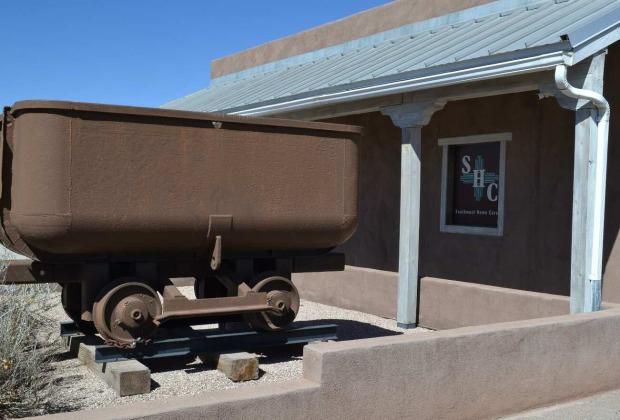GRANTS, NM – You may have thought that the mining industry was part of Grants history, but many of those miners who made up our community, and their families, are still with us.
Their families take care of the retired miners who once took care of them. Now they are retired, but their years are not all golden. Many suffer from ailments that are work related. Having spent years breathing the contaminated dust down in the uranium mines, or because they were thirsty, they drank the water that trickled through the rocks, they now experience health issues, mostly lung diseases, difficulty breathing, also skin cancer, brain tumors, kidney failure, Parkinson’s, and other maladies.
There is one retired miner who is taking care of his mining brothers and their families by opening Southwest Home Care. Opened in 2013, Southwest Home Care is owned by Larry Taylor, and operated by Taylor and his wife Sue, daughter Melanie, son Duane, and office manager Karen Gallegos. Larry Taylor relates to the families that his health care company is able to help. Taylor and other family members were working for mining companies; they have lost five family members. Taylor decided to start his own health care company to provide dignified assistance to ailing miners, enabling them to stay in their homes and to not have to live in a nursing home to receive the necessary health care.
Southwest Home Care receives financial assistance through the Radiation Exposure Compensation Act that helps miners, and others, exposed to radiation resulting in illnesses.
Most clients have entered the program through their lawyers who are well versed in the health issues and conditions that are covered by the Radiation Exposure Compensation Act. RECA , designed “to provide jurisdiction and posed to the radiation released at testing sites, like White Sands Missile Range in 1945. The air contaminated with the dust from the explosion was carried by the wind and spread over a large area called a “plume”. People living in “plume” areas and having symptoms associated with radiation poisoning have qualified for aid under RECA.
A noted Grants resident and a miner, whose family doesn’t want his name mentioned, fell while he was working. He landed face down into a puddle. He had passed out and a doctor’s examination discovered he had had a stroke. At bedtime the miner continued to feel dizzy, even when lying down. That is when a sleep study was recommended which discovered Parkinsons. He was given medication and sent to a neurologist.
The Department of Labor began testing miners in areas with a high count of illnesses. This Grants miner went to Cibola General Hospital for an oxygen test that would discover the amount of oxygen received by his lungs transported in his blood. He took the painful test every few months. His high blood oxygen level indicated his lungs were in good health and he did not qualify for assistance. But he was not in good health. His daughter took him across the hall to their physical therapist who allowed them to use the stationary bike. Following a period of exercise on the bike, the miner tested again, and his blood oxygen level was low. He then qualified for assistance.
The miner’s health slowly deteriorated, and he lived for a few more years. He passed away in 2010 and is only one of our local miners who have suffered from work related radiation poisoning.
When the Taylor family first opened their Healthcare company there were only about three other such businesses in Grants, there are now over 100, not in Grants, but serving this area. Over 15 Department of Labor programs, also not all in Grants, are presently serving the Grants area’s former uranium miners.

